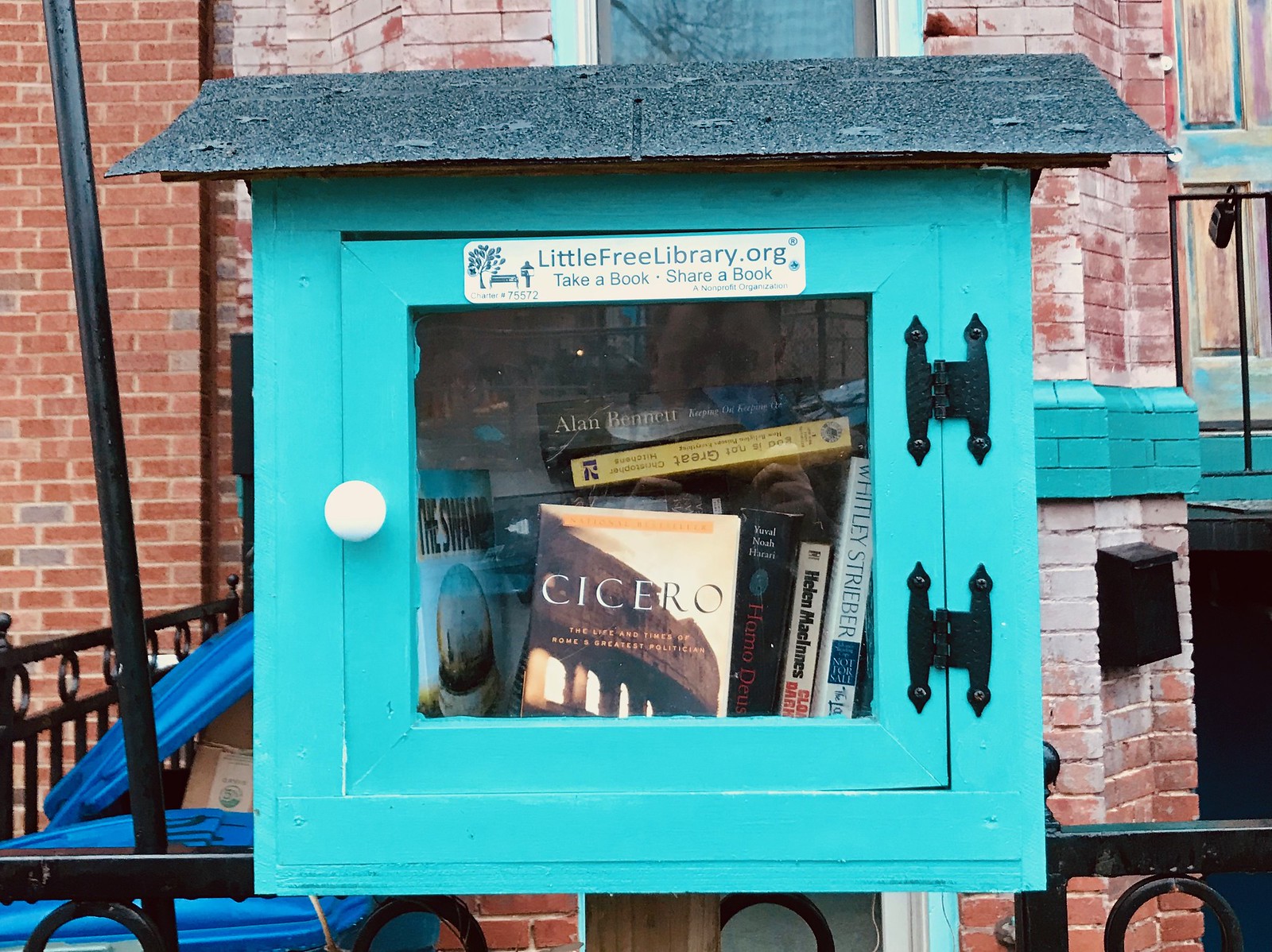Little Free Libraries are little boxes of bookish surprises scattered around the world, like a real-life Pokemon Go, but for readers.
Cicero: The Life and Times of Rome’s Greatest Politician was a serendipitous find, a biography I was interested in, but then forgot, until I saw it in the Little Free Library on N St.
The last defender of democracy, Cicero used his oratory and wits in a face off against Caesar and the forces of dictatorship. While he ultimately failed, his true legacy was that, in the words of Voltaire, “He taught us how to think.”
Trump Would Not Surprise Cicero
With its marble-columned temples and soaring public spaces, Washington is a Roman city, one that Cicero would instantly recognize and feel at home in. He argued cases in the courts, led marches against the government and gave passionate speeches before the Senate. Our three branches of government, with its checks and balances, would be familiar to him, for they stem from Roman antecedents, our founding fathers inspired by Cicero’s failure to create something more resilient.
An aspiring dictator like Donald Trump would not surprise him. Cicero famously uncovered the Cataline Conspiracy, a plot by a bankrupt aristocrat to overthrow the government and burn Rome to the ground. He said:
A nation can survive its fools, and even the ambitious. But it cannot survive treason from within. An enemy at the gates is less formidable, for he is known and carries his banner openly. But the traitor moves amongst those within the gate freely, his sly whispers rustling through all the alleys, heard in the very halls of government itself. For the traitor appears not a traitor; he speaks in accents familiar to his victims, and he wears their face and their arguments, he appeals to the baseness that lies deep in the hearts of all men. He rots the soul of a nation, he works secretly and unknown in the night to undermine the pillars of the city, he infects the body politic so that it can no longer resist. A murderer is less to fear.
He had the traitor executed.
Democracy in Rome, as limited as it was, could not manage a rapidly expanding empire beset by financial problems and a military quagmire in the Mideast. Our troubles in the region would be depressingly familiar to Cicero. After uncovering the Cataline conspiracy, he was appointed governor of Cilicia, where he suppressed rebellious tribes in Syria.
Ultimately, however, Cicero was just an orator. As Rome slid toward autocracy, first through the self-dealing Triumvirate and then the rule of Julius Caesar, he was warned to stay out of politics, a tale told in the interesting novel Dictator.
But Cicero couldn’t stay out of the Senatorial limelight. While not part of the plot against Caesar, it was he who Brutus hailed as the dictator bled to death. Once Caesar was gone, Cicero tried to unify the Senate against Mark Antony and the Julian faction.
A bloody civil war took place across the Mediterranean world of the Roman Empire, from Spain to Cleopatra’s Egypt.
When it was done, Rome had an emperor: Augustus.
A list was drawn up of enemies of the state. If you were proscribed, you could be put to death and your properties seized. Cicero was hunted across Italy. When soldiers caught him, he bared his throat so they could slash it properly, the gesture of a gladiator who meets his end nobly in the arena.
Democracy was dead but Cicero’s legacy lived on. Much of what we know from the Roman world comes from the voluminous letters of the orator, many of which survived. He also was a key transmitter of Greek and Roman ideas and philosophy, which were rediscovered during the Renaissance.
Natural Law
From him, we have the concept of natural law, the belief that there is a moral order beyond the rules enacted by governments. As he said,
For there is but one essential justice which cements society, and one law which establishes this justice. This law is right reason, which is the true rule of all commandments and prohibitions.
Our Founding Fathers were inspired by his life and writing. John Adams said, “As all the ages of the world have not produced a greater statesman and philosopher united than Cicero, his authority should have great weight.”
And weighing the lessons of Cicero, they produced the republic of checks and balances that we have today. Thanks to the ancient Roman orator, we have the means to resist a dictator.

